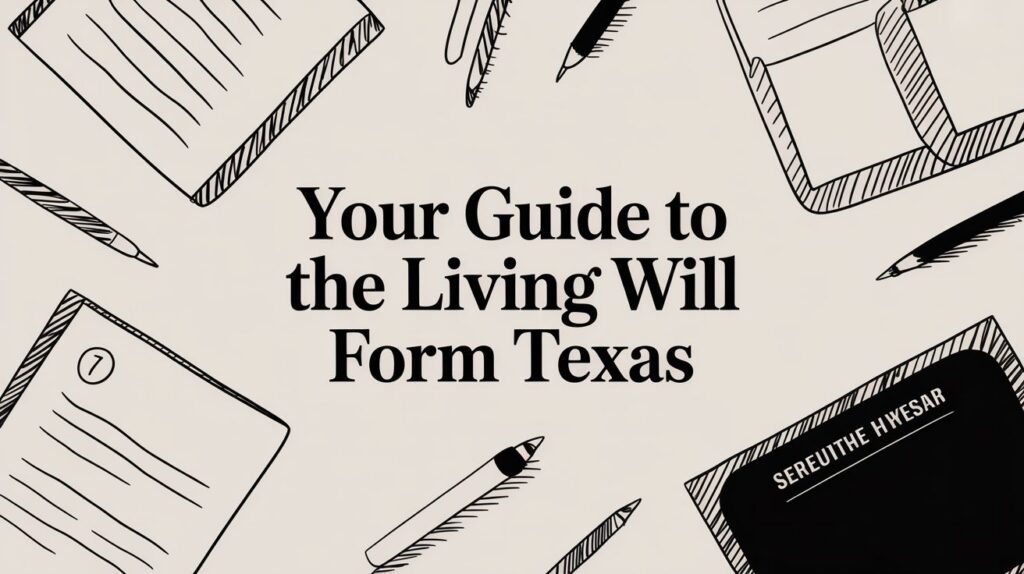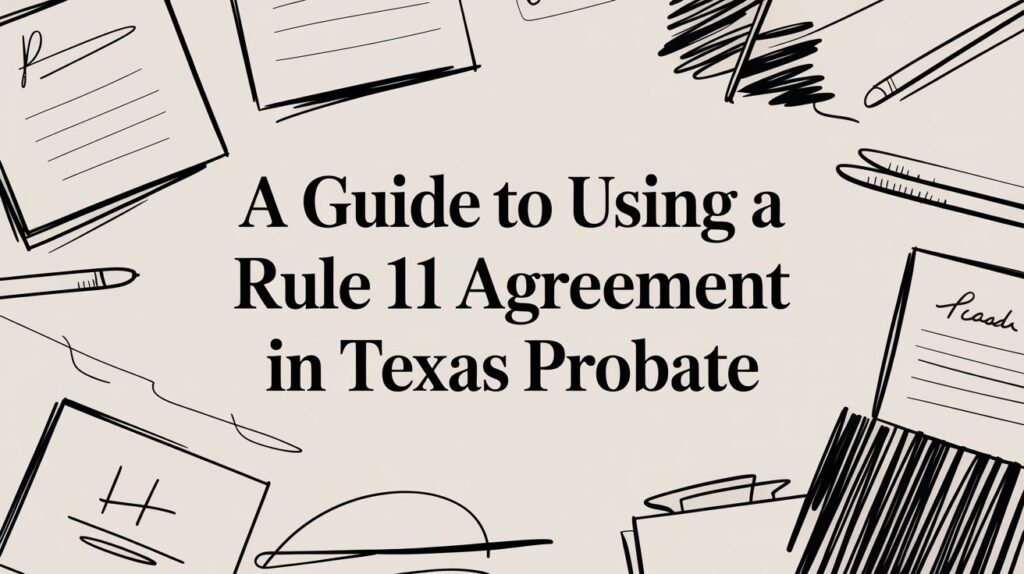If you’re navigating probate in Texas and just realized your loved one owned property in another state, you’re likely wondering, “What do I do with out-of-state inventory in Texas probate?” You’re not alone and it’s a question that catches many executors, heirs, and even attorneys by surprise. It’s one thing to handle assets like a home in Austin or a bank account in Houston. But throw in a condo in Florida or land in New Mexico, and suddenly, you’re facing an entirely different probate beast ancillary probate.
In this article, we’ll walk through exactly how out-of-state inventory in Texas probate is handled, when ancillary probate becomes necessary, and how to avoid common pitfalls. We’ll break it down using real-life examples, simple language, and practical advice you won’t get in a courtroom. Whether you’re an executor, heir, or just planning your estate, understanding how Texas treats out-of-state assets could save you months of frustration and thousands in unnecessary legal fees.

What Does “Out-of-State Inventory” Actually Mean?
When we talk about out-of-state inventory in Texas probate, we’re referring to any real or tangible property owned by a decedent (the person who passed away) that’s located outside of Texas. That includes:
- Real estate: a second home in Arizona, vacation property in Colorado, farmland in Oklahoma.
- Vehicles or boats titled in another state.
- Mineral rights or oil and gas interests in other jurisdictions.
- Tangible personal property stored out of state, such as artwork, machinery, or antiques.
This does not include things like bank accounts, stocks, or retirement accounts unless they’re physically or legally tied to another jurisdiction.
If someone dies while residing in Texas, their estate will generally be probated in Texas. But if they also owned out-of-state property, the Texas probate court doesn’t have jurisdiction over those non-Texas assets. That’s where ancillary probate comes in.
Why Texas Probate Doesn’t Cover Out-of-State Real Estate
Texas courts can only control what’s within Texas borders. So while your loved one’s home in Dallas and their checking account at Frost Bank are fair game for Texas probate, their vacation house in Santa Fe falls under the laws of New Mexico, not Texas. Jurisdiction matters in probate, and each state only governs assets physically located within its boundaries.
Let’s say your father passed away in San Antonio, but he owned a cabin in Colorado. Even if you open probate in Bexar County, the judge there can’t legally transfer ownership of that Colorado property to you or any other heir. The Colorado court system would need to be involved—that’s the entire premise behind ancillary probate. Without the proper court authority in the other state, title companies and financial institutions won’t honor your executor powers.
What Is Ancillary Probate?
Ancillary probate is a secondary probate proceeding that takes place in a different state from the decedent’s primary residence. It’s specifically used to handle out-of-state inventory particularly real property that can’t legally be transferred through the home state’s probate system alone. It acts as a companion to the main probate case, allowing the executor to fulfill their duties across state lines.
It doesn’t mean you’re starting from scratch. You’ll usually begin by opening the primary probate case in Texas. Then, you (or your attorney) will use documents from the Texas court often a certified copy of the will and probate orders—to file for ancillary probate in the other state. This allows that state to recognize the Texas proceedings and authorize property transfers accordingly.
Each state has its own rules, but the process is often more streamlined than full probate. Still, it requires careful navigation, especially when deadlines, filing fees, and notice requirements differ. Coordinating timelines between jurisdictions is essential to avoid unnecessary delays in resolving the estate.
Real-Life Example: The Florida Condo Complication
Meet Laura. Her mother passed away in Fort Worth, leaving behind a will, a modest estate, and a condo in Naples, Florida. Laura opened probate in Tarrant County without a hitch. But when it came time to sell the condo and divide the proceeds between siblings, she hit a wall.
The title company wouldn’t touch the Florida property without a court order from a Florida probate judge. Laura’s Texas Letters Testamentary weren’t enough. She had to hire a Florida probate attorney, file ancillary proceedings, and wait nearly six months for approval to sell the condo.
The lesson? Even with everything in order in Texas, out-of-state inventory like real estate requires its own legal process in the state where it sits.
When Ancillary Probate Is Required (and When It’s Not)
You’ll definitely need ancillary probate if:
- The decedent owned real property (like land, a house, or mineral rights) in another state.
- You need to sell or legally transfer that property to heirs or beneficiaries.
You might not need it if:
- The out-of-state property was jointly owned with rights of survivorship.
- The asset was held in a trust that avoids probate.
- The decedent named a transfer-on-death (TOD) or beneficiary designation for that asset.
In these cases, the property may transfer automatically outside of probate—but only if the legal paperwork was properly set up before death.
Out-of-State Inventory in Texas Probate and the Role of the Executor
If you’re the executor named in a Texas will, your job just got a bit more complex. Managing out-of-state inventory in Texas probate means you’ll likely need to coordinate with legal counsel in the state where the out-of-state property is located.
Some key responsibilities include:
- Gathering deeds or titles to out-of-state property.
- Locating local probate attorneys or real estate professionals in the other state.
- Filing the Texas will and probate orders with the out-of-state court.
- Tracking timelines, hearings, and compliance requirements in multiple jurisdictions.
It’s a lot—but with the right support, it’s manageable.

How to Avoid Ancillary Probate with Smart Estate Planning
If you’re planning your own estate—or helping a loved one do it—you can save your heirs a ton of stress by planning around out-of-state inventory in Texas probate from the start. A few smart legal tools and well-timed decisions can prevent your family from having to deal with multiple courts after you’re gone.
Strategies to Avoid Ancillary Probate:
Place the out-of-state property in a living trust
This lets the property pass outside of probate entirely, in all states. It also gives the trustee the authority to manage or sell the property without going through court.
Use a transfer-on-death deed (if available in that state)
Some states allow TOD deeds, which can transfer property automatically to a named beneficiary. This tool is especially useful for real estate and avoids delays or legal fees tied to probate.

Add a co-owner with right of survivorship
Be cautious with this option—it’s simple but comes with risks if relationships or ownership goals change. It also exposes the property to the co-owner’s creditors or legal issues, which can complicate things later.
Sell or gift the property before death
In some cases, simplifying the estate by selling or gifting property can eliminate the need for probate altogether. This approach can also help reduce tax exposure and avoid title complications during the transfer.
Common Mistakes People Make with Out-of-State Inventory
Even well-meaning executors and family members can make costly errors when dealing with out-of-state inventory in Texas probate. Here are a few to avoid:
- Assuming Texas probate covers everything
It doesn’t. You’ll need authority from the other state to act on its real estate. - Failing to get local legal advice
Each state has unique probate rules, timelines, and requirements. - Delaying the ancillary probate filing
Title transfers, sales, and tax filings can all get delayed if you wait too long. - Overlooking small assets with big value
Mineral rights or partial land ownerships often get forgotten—and can require probate if valuable.
How Long Does Ancillary Probate Take?
This depends entirely on the state, the property, and how organized you are when filing. In general: having key documents on hand and legal representation in the second state makes the process faster and smoother.
Simple ancillary proceedings can take 3–6 months
This usually applies to estates with clear title, no disputes, and well-prepared court documents. Quick action on your part can keep things moving and avoid unnecessary delay.
Complex cases or those involving disputes can stretch to 12 months or more
If multiple heirs are involved, the property has liens, or there are disagreements over ownership, expect delays. These cases often require additional hearings and paperwork, increasing both time and cost.
Having the right documentation from the Texas probate case and hiring a responsive local attorney in the second state can speed things up significantly. Organization, early legal action, and communication with heirs all play a role in avoiding common delays.

Final Thoughts
Dealing with out-of-state inventory in Texas probate can feel like solving a puzzle with pieces scattered across the map. But with a clear understanding of how ancillary probate works—and the right people on your team—you can piece everything together smoothly.
Don’t let legal jargon or geography stand in your way. Whether it’s a vacation home, inherited mineral rights, or simply a car titled out-of-state, knowing what to expect and planning ahead can make all the difference. Probate is never easy, but it doesn’t have to be harder than it needs to be.








